English Edition

- By CNI
- Category: English Section
- Hits: 104
CNI Interview
February 9, 2026
Following the completion of the 2025 General Election in Myanmar, Parliament (Hluttaw) is scheduled to convene in March, with a new government set to be formed in April.
Prior to this, Senior General Min Aung Hlaing signed and enacted the Union Consultative Council Law on February 3, 2026.
Meanwhile, China and India are closely monitoring how trade and peace processes will evolve once the new government takes office. CNI News contacted political analyst U An Kaw La to discuss these developments.
CNI: There are rumors that the new government will be a "National Reconciliation" or "Coalition" type. Wouldn't it be more effective if government departments had some level of decentralized authority rather than the Union government holding all the power? If they just have to follow central orders, will anything really change?
U An Kaw La: Since the era of the State Administration Council (SAC), there has been a roadmap stating that Myanmar will move toward democracy and a federal system. They have declared this since 2021 and have consistently stuck to this principle as the first point of the political roadmap. In democracy and federalism, Decentralization and the Division of Power are key. The important thing is how these will be implemented.

Since the policy already exists, the bylaws must follow. Implementation would be a positive move—a "good transition." The real question is the extent of decentralization: will it be "control-based decentralization" or true autonomy? These are critical political decisions. Much depends on how magnanimous the current ruling party and the Military Commission are. If they can create a precursor model for future peace, it would build trust. Whether it happens and to what extent remains to be seen.
CNI: What is your view on the newly enacted Union Consultative Council Law?
U An Kaw La: I see this as an evolution of existing legal frameworks. During the NLD government, there was the "State Counsellor Law," which was person-centric, specifically created for Daw Aung San Suu Kyi to lead alongside the government.
Now, the "Union Consultative Council" suggests a group-based approach. This group will likely coordinate with the Executive and the Legislature to handle national stability, peace, international relations, and legal matters. In my view, an aggregate group is better because it can provide a power balance and stronger counter-balances. I see this as a "Methodology" for the democratization and federal transition period. It implements the roadmap by working through three collective bodies.
CNI: The law states the President must assign duties and powers to the Council. How much authority do you think the Council will actually have?
U An Kaw La: I view this as a State Think Tank. Currently, we see advisory roles within the Military Commission and the SAC. In a complex landscape—navigating ASEAN, regional issues, and balancing global superpowers—a government cannot act alone. It needs an elite group of experts.

The global context is changing rapidly. We need a Council that constantly studies the strategies and policies of other nations. I like this idea. Having a high-level Think Tank to counsel the government will make implementation more effective.
CNI: The President has the power to appoint the Chairman and Secretary of the Union Comsultative Council. What kind of individuals do you expect to see?
U An Kaw La: Legally, the President is the highest head of state under the 2008 Constitution, so this is consistent. While it is hard to predict specific names, I expect to see influential ethnic leaders included. This would be beneficial. Our country needs a coalition-style leadership.
If the leadership continues to be dominated solely by the Bamar ethnic group, it isn't ideal for long-term peace. Including ethnic intellectuals in the leadership would facilitate a more collective and successful political transition.
CNI: Regarding the military situation, what are the attitudes of China toward the KIA (Kachin) and the AA (Arakan) in the current context?
U An Kaw La: We must estimate China’s policy. China prefers a strong, stable institution at the center, but they also favor "tax autonomy" and "trade autonomy" linked with peace processes.
Looking at the current conflicts along the border, we can see China’s positioning. Myanmar needs to consider a "New Ideology" for the Union. If we base our thinking on the non-disintegration of the Union and ethnic unity while integrating this new ideology, we will get closer to a real solution. This is a major responsibility for the new government.
CNI: What factors have allowed the KIA and AA to become so strong and well-established?
U An Kaw La: This requires an analysis of Geopolitics. It depends on the shifting policies of China and India. Both the KIA and AA directly interact with India and China along the borders. I don't see direct pressure from India or China in these interactions; rather, they seem to follow policies focused on their own border states.
The alliance dynamics between China and India shifted after the meeting between Modi and Xi Jinping at the last SCO summit. We see plans for trade routes like the Panwa-Kanpaiti road. The survival and actions of the AA and KIA are now deeply intertwined with the diplomacy of India, China, and the Myanmar government. We need a more sophisticated diplomatic approach; otherwise, things will remain difficult.

- By CNI
- Category: English Section
- Hits: 165
CNI News
6 February 2026
Political analyst U An Kaw La told CNI News Agency that the upcoming new government needs to anticipate the direction China intends to take within Myanmar’s military and political landscape.
He said that China favors strong and stable leadership from the current central government and that it is necessary to consider the forms China seeks to implement in Rakhine State, Kachin State, and northern Shan State.
U An Kaw La said: “We need to anticipate China’s policy. If we can predict how China wants to proceed, handling issues related to Rakhine and Kachin will become much easier. If we do not understand China’s policy, it becomes difficult. China’s stance is that it prefers strong, stable institutions leading from the current central government. Another point is tax autonomy and autonomous trade arrangements that are implemented alongside peace. I believe China favors such models. This is because if we observe the way China has established its footholds along the border areas in the context of current conflicts, we can analyze that such a pattern already exists. Based on that foothold, we need to consider how to approach the peace process.
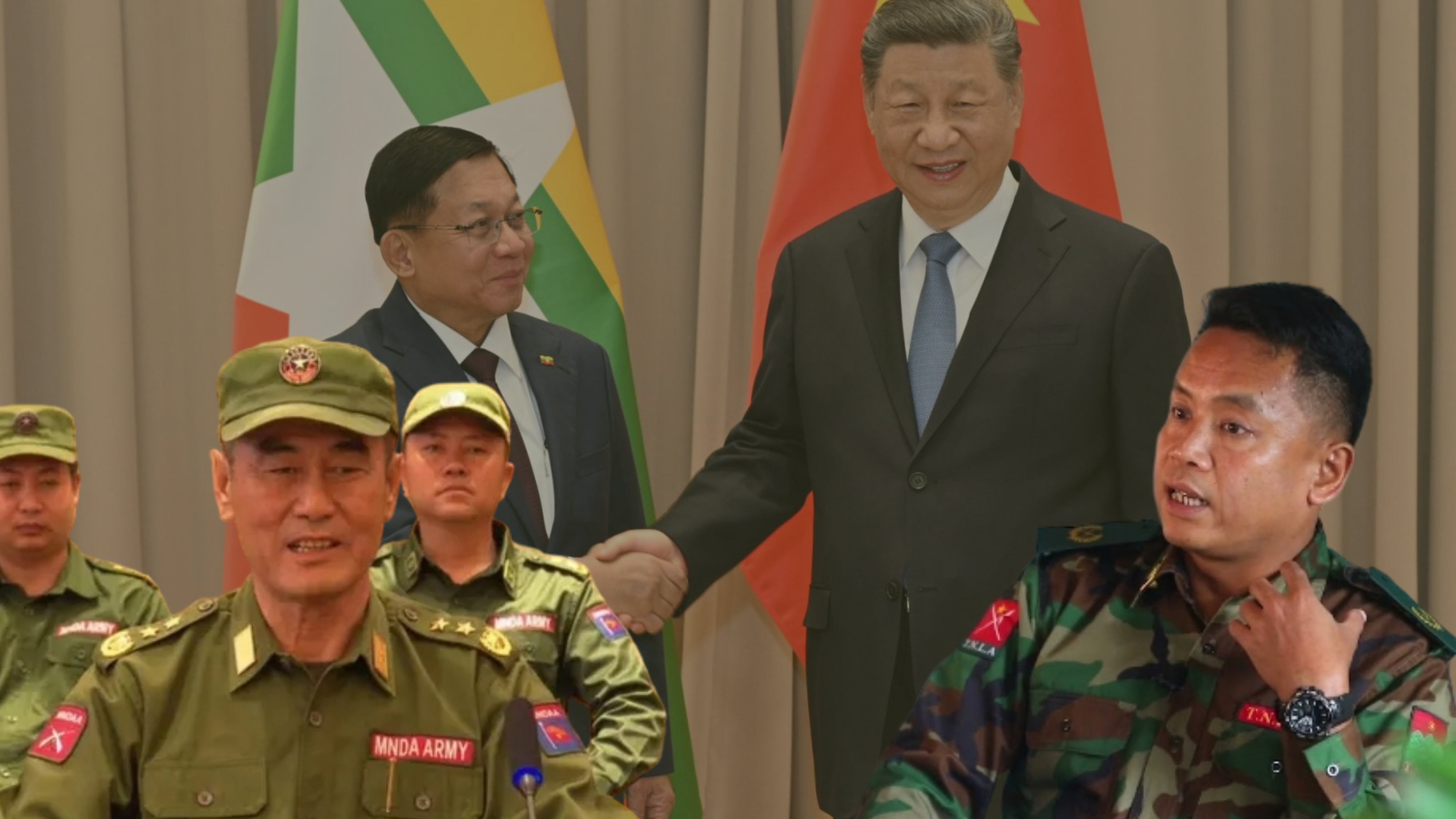
Chinese President Xi Jinping meeting with Senior General Min Aung Hlaing
How issues in Rakhine, northern Shan, and Kachin are implemented follows that same pattern (China’s way of establishing footholds along the border). From our side, we also need to consider introducing a new ideology. This is important for the Union. If we ground our thinking in the principles of preserving the Union, preventing disintegration, and strengthening ethnic unity, and then incorporate a new ideology into that framework, I believe we will come closer to the right answers. This is a major responsibility of the new government.”
China’s Special Envoy for Asian Affairs, Mr. Deng Xijun, stated on December 29, 2025, that holding the 2025 multi-party democratic general election was an agreement reached between Chinese President Xi Jinping and Senior General Min Aung Hlaing.
At present, instead of putting direct pressure on armed groups in Myanmar, China is mainly applying pressure indirectly by urging the “Wa” armed group to withdraw support.
In the current political landscape of Myanmar, although northern armed groups have agreed to ceasefires with the Myanmar military (Tatmadaw), analysts note that the Kachin Independence Army (KIA) and the Arakan Army (AA) are growing stronger and appear increasingly capable of establishing themselves in their respective territories.
Political analyst U An Kaw La told CNI News Agency that in the upcoming government environment, relations among the government, China, India, KIA, and AA will become increasingly important, depending on the positions, policy changes, and movements of China and India.
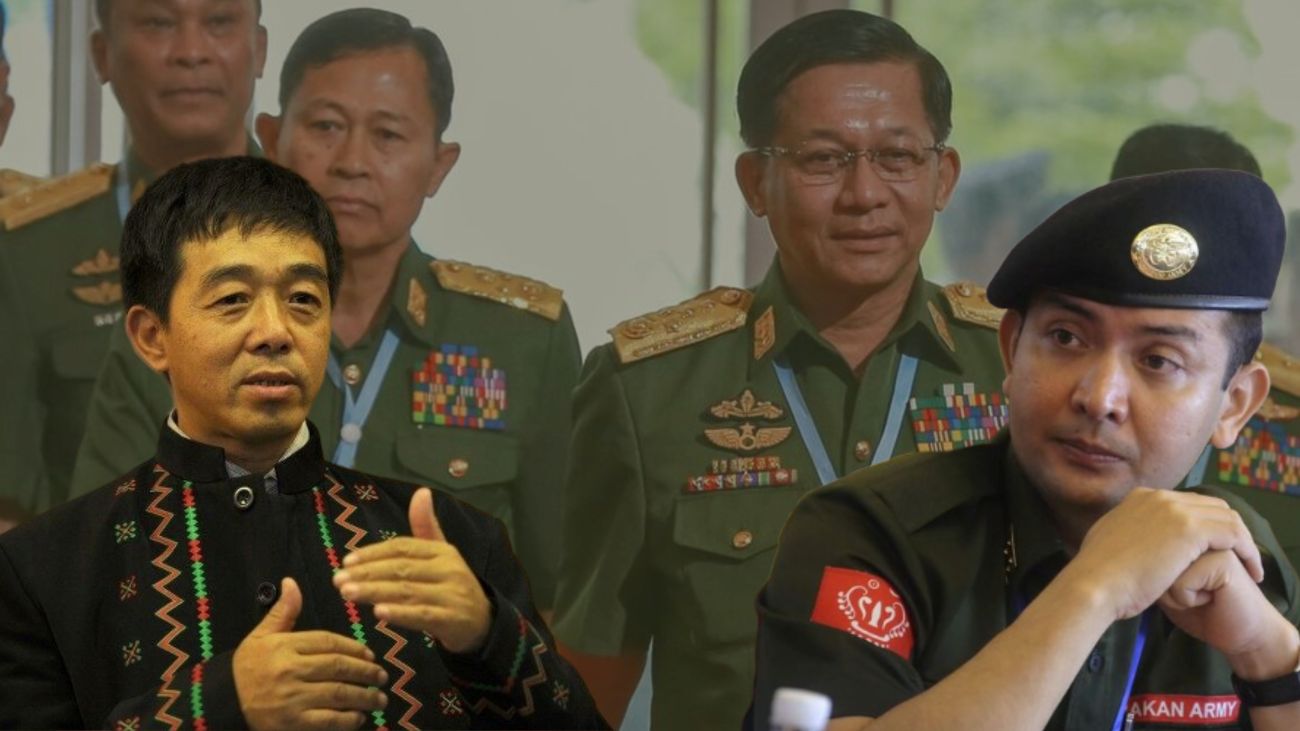
Senior General Min Aung Hlaing and KIA and AA leaders
He said: “In short, geopolitics needs to be analyzed extensively. The positions, policy changes, and movements of China and India are crucial. This is because both KIA and AA maintain relations with both India and China. These are direct interactions along border areas. In my view, neither the Indian nor Chinese governments tend to apply direct pressure through formal diplomacy or border affairs. Instead, they primarily engage through relations that focus on their respective regional states.
Changes in the China–India alliance dynamic became noticeable after Modi and Xi Jinping last met at the SCO Summit. Following that meeting, new conditions emerged, including plans to implement trade routes such as the Pansaung–Kanpaikti road. What the next government will do cannot yet be stated clearly. However, given the trend toward closer relations, the survival and actions of AA and KIA will increasingly depend on the positions of India and China, as well as Myanmar government diplomacy. These factors must be carefully analyzed and addressed. Otherwise, it will be quite difficult.”
China currently has numerous investment projects in Myanmar, including the Kyaukphyu Special Economic Zone, the Myitsone Dam, elevated railway projects, the Kanpaikti Economic Cooperation Zone, the Muse–Mandalay trade road and railway, and the Ruili–Mandalay–Kyaukphyu expressway, among others.

- By CNI
- Category: English Section
- Hits: 104
CNI News
6 February 2026
Political analyst U Kyaw Htet told CNI News that if the ministers appointed to Myanmar's government cabinets are weak, central control will become more dominant.
Domestic and international political observers have analyzed that the upcoming new government is likely to be formed with a focus on national reconciliation. They suggest that if such a government is formed, prominent political leaders may be appointed to lead respective ministries.
U Kyaw Htet noted that the division of ministries will occur only after negotiations between Senior General Min Aung Hlaing and the Union Solidarity and Development Party (USDP), which won the majority of seats in the election and is set to form the government. He emphasized that while the Parliament (Hluttaw) must oversee the government, ministries must also be granted full executive authority.
U Kyaw Htet stated: "If the Parliament cannot provide constructive checks, balances, and discussions on government actions, the political landscape will likely fall under centralized power. If the Parliament can maintain a 'check and balance' system and if ministers are granted independent authority over their respective sectors, progress can be made. Therefore, we hope to see qualified and capable individuals appointed as ministers. Simply put, if ministers are highly competent and sharp in handling state affairs, central control will decrease. Conversely, if ministers are weak, centralized control will regain its strength."
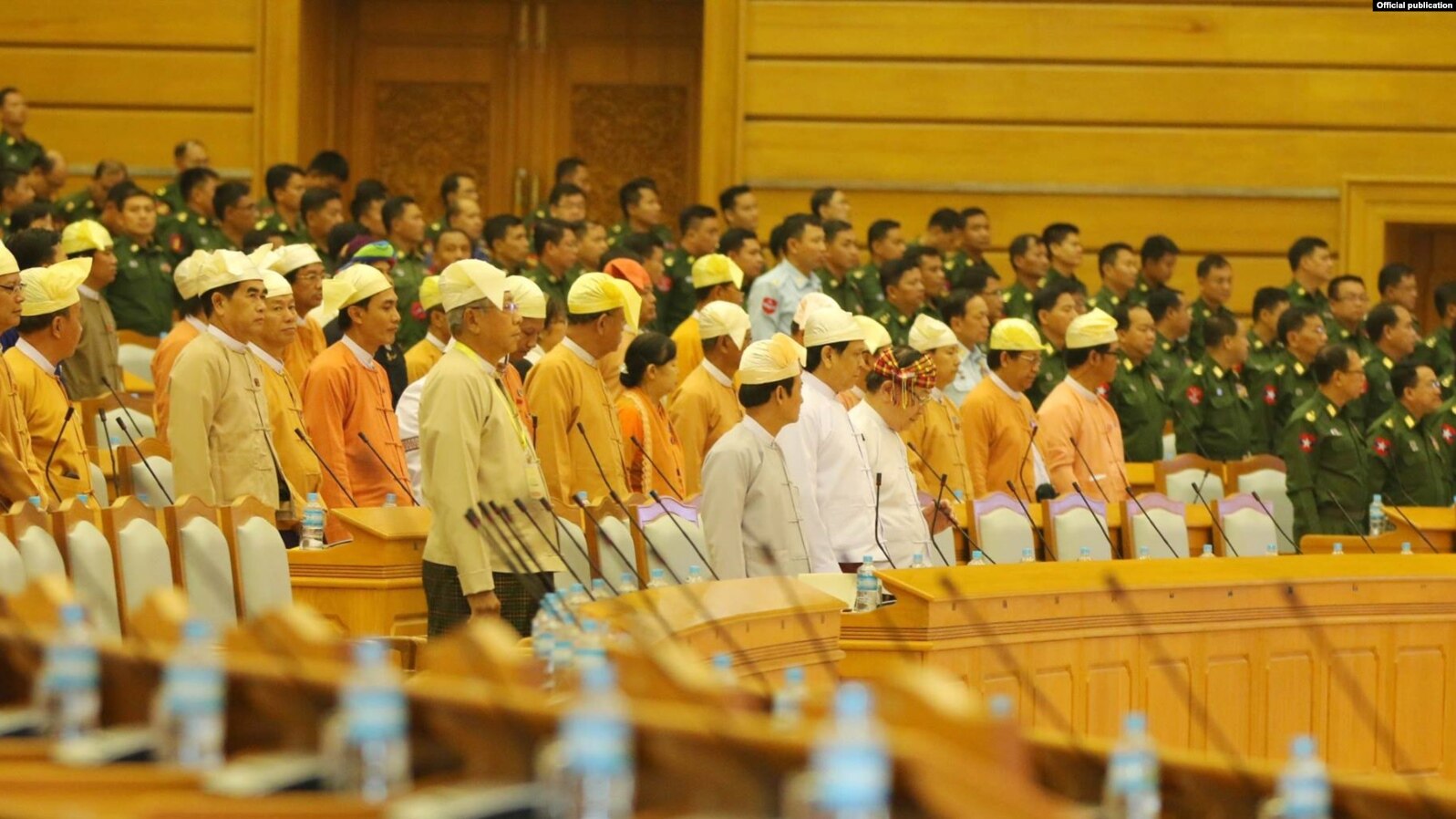
A session of Hluttaw in progress.
Political parties have pointed out that a national unity government is necessary to resolve the current armed conflicts and political crises. The Myanmar military (Tatmadaw) has stated that during its five-year administrative period, it intends to move toward a political system based on democracy and federalism.
Political analyst U An Kaw La told CNI News that while a national reconciliation government would be beneficial, its success depends on the magnanimity of the winning party and the current authorities.
He said: "In a democratic system—and there has been a roadmap toward democracy and federalism since the SAC took over in 2021—the key elements are decentralization and the division of power. The policy exists; the regulations must follow. If implemented, it would be a positive move. The question is the extent of decentralization—whether it will be 'control-based' or true 'autonomy.' These are critical political factors. The magnanimity of the current ruling party and the leading commission is vital. Establishing such a precedent would serve as a model for future peace and trust-building. I believe it is good if it happens, but I will have to study to what extent they actually grant authority."

An illustration depicting the government and justice.
2025-2026 Election Results The multi-party democratic general election in Myanmar was held in three phases, beginning on December 28, 2025, and successfully concluding on January 25, 2026. The Union Election Commission (UEC) released the final list of elected representatives on February 3, 2026.
According to the announcement, the winning seat counts are as follows: Union Solidarity and Development Party (USDP): 739,National Unity Party (NUP): 68, Shan and Nationalities Democratic Party (SNDP/White Tiger): 39,People's Party (PP): 30, People's Pioneer Party (PPP): 20.
Pa-O National Organisation (PNO): 18,Mon Unity Party (MUP): 17,Naga National Party: 12,Arakan Front Party (AFP): 8,Karen National Democratic Party: 7,Zomi Congress for Democracy: 7,Myanmar Farmers' Development Party: 6,Arakan National Party (ANP): 6, Shanni Nationalities Solidarity Party (SNSP): 5,Danu Nationalities Democracy Party: 5, Tai-leng (Shanni) Nationalities Development Party (TNDP): 4,Intha National Organisation: 4, Kayah State People's Party: 3,Kachin State People's Party: 3.

- By CNI
- Category: English Section
- Hits: 172
CNI News
February 5, 2026
General N'Ban La, Chairman of the Kachin Independence Organization (KIO/KIA), urged people not to destroy the beautiful shared history of the Shan and Kachin ethnic groups. He made these remarks in a speech delivered today, February 5, 2026, marking the 65th Kachin Revolution Day.
Regarding the relationship between the two groups, General N'Ban La stated:
"I want to speak to the public regarding our Shan brothers and sisters living alongside us. Shan and Kachin peoples have lived together for generations throughout history. Despite the military junta's attempts to create division, let us not allow our beautiful history to be broken. Let us rebuild with love for future development. Let us remain vigilant against deceptive media reports to avoid being misled by misinformation."
The KIO established the Kachin Independence Army (KIA) on February 5, 1961. This date has since been commemorated as Kachin Revolution Day, now reaching its 65th anniversary.
While the KIO/KIA is based in Kachin State, it currently maintains military operations and territorial control in Northern Shan State and Sagaing Region, areas inhabited by various Shan ethnic subgroups, including the Shanni (Tai Leng).
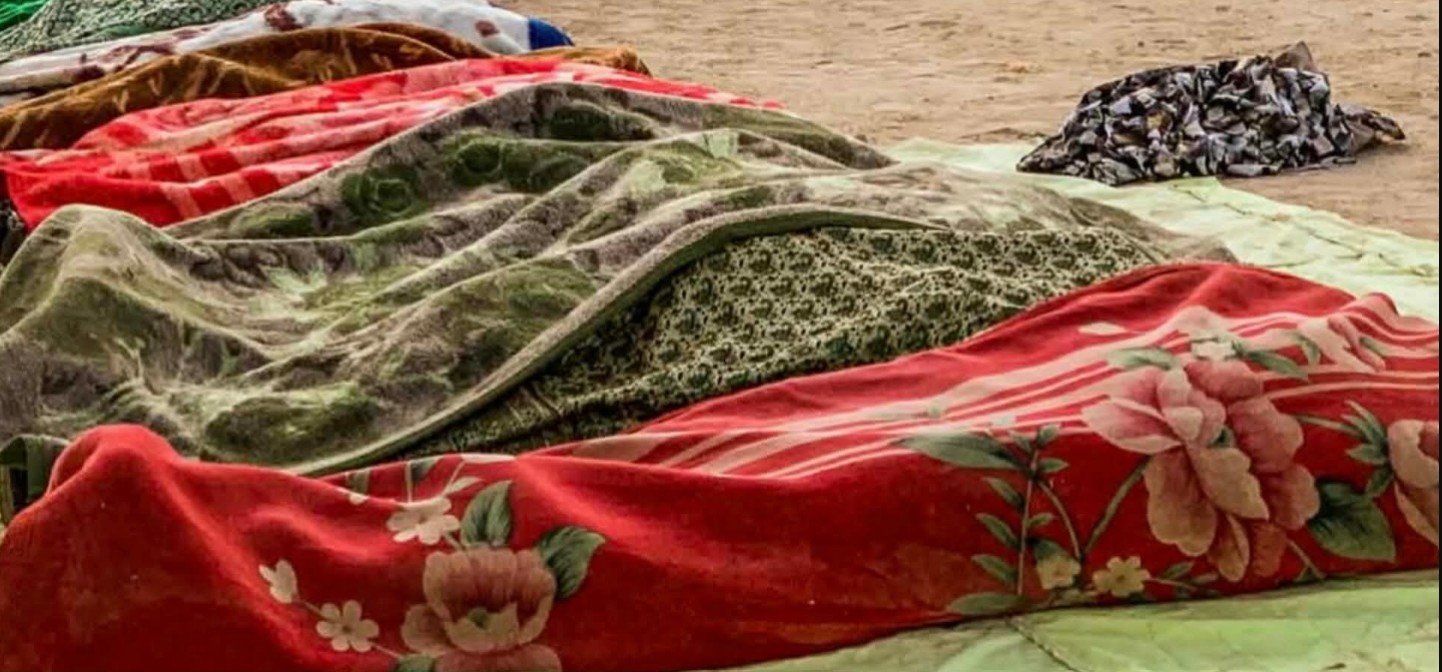
The bodies of 12 Shanni men abandoned in a monastery in Banmauk after being killed (Source: Shanni Empire).
Because of this, intense fighting has broken out with the Shanni Nationalities Army (SNA), a group striving for equality and rights for Shan subgroups within the Sagaing Region.
Local Shan communities in Kachin State, Shan State, and Sagaing Region have raised serious allegations against the KIA/KIO, including:
Forced recruitment and arbitrary arrests. Physical abuse and killings. Sexual violence against women. Attempts at "Kachinization" (forced cultural assimilation) and general oppression.
In January, Shanni community members reported that the KIA killed 12 Shanni men in Banmauk Township. There have also been reports of killings involving Shanni monks and members of Shanni literature and culture associations.
Political analysts point out that the KIO/KIA leadership must effectively manage and restrain these actions on the ground if they truly hope to implement peaceful coexistence between the Kachin and Shan ethnic nationalities.

- By CNI
- Category: English Section
- Hits: 122
CNI News
January 5, 2026
In the political and military landscape that will emerge after the elections, China may be able to draw the “Wa” Army (UWSA), the Kokang Army (MNDAA), and the Mongla Army (NDAA) onto the peace process, according to China–Myanmar affairs analyst Dr. Hla Kyaw Zaw, who spoke to CNI News.
She said that regardless of which government comes to power after the elections in Myanmar, China will recognize and support it. In the coming military situation, China may attempt to bring the Wa, Mongla, and Kokang groups to the peace negotiation table.
Dr. Hla Kyaw Zaw stated: “China will support and recognize whoever comes to power in Myanmar. Even if the USDP comes to power, China will support it. China’s perspective is that if development advances and people’s economic conditions improve, stability will follow. That’s how they calculate it. So if a proper government emerges, China will be able to carry out its projects in Myanmar effectively. They have investments here—projects like the roads leading to the Kyaukphyu deep-sea port and others. If all of these are implemented and Myanmar’s basic infrastructure improves significantly, China believes the country will become stable and peaceful. Therefore, I think China will continue to support the next government. They will try to promote economic development. China will definitely enter through economic means. They will work to improve infrastructure and help ease people’s livelihoods.

Colonel Khun Okkar
“Even now, what I’m hearing is that China is very actively and intensively involved in border areas such as Wa, Mongla, and Kokang. They are deeply involved in agriculture and other sectors, providing assistance. Through this approach, they try to stabilize one side and then bring everyone to the peace negotiation table. I think that’s what China is attempting.”
Chinese investment projects in Myanmar include the Kyaukphyu Special Economic Zone, the Myitsone Dam, elevated railways, the Kanpiketi (Kanpaiti) economic cooperation zone, the Muse–Mandalay trade route and railway, the Ruili–Mandalay–Kyaukphyu expressway, among many others.
Whether China will come to dominate Myanmar is difficult to say. However, Myanmar is in a position where it will have to rely on China to some extent. The incoming government could be one that cooperates strategically with China, according to Colonel Khun Okkar, Chairman of the Pa-O National Liberation Organization (PNLO-NCA/S), which is a signatory to the Nationwide Ceasefire Agreement (NCA), speaking to CNI News.
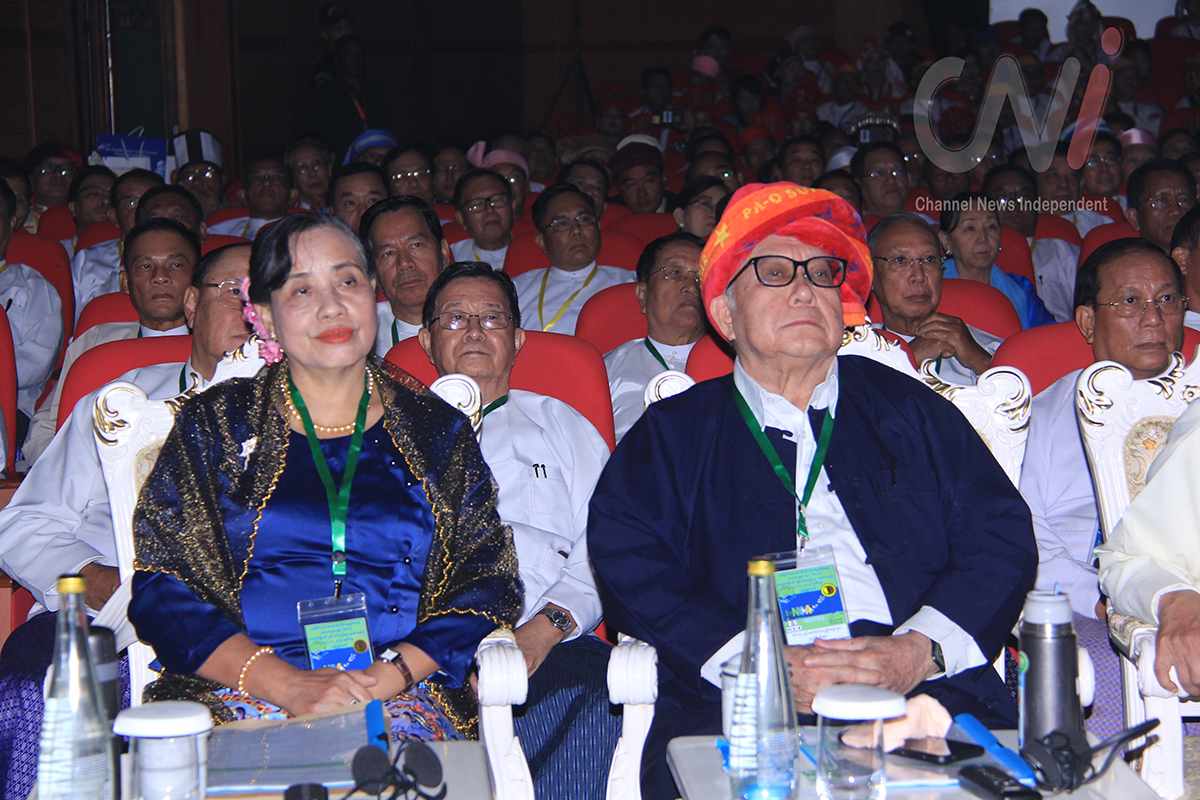
Two leaders from PNLO and ALP
He said: “China prioritizes economics. No matter what system a country is governed under, as long as the country is stable and China can conduct its business, that is enough for them. So whether it’s peace or democracy—whatever the issue—China doesn’t place much importance on that. What China truly cares about is stability. Stability is the core of its foreign policy. If there is stability, China can operate. It’s hard to say that China will dominate. Between one country and another, one sovereignty and another, one government and another, what they call it is ‘strategic cooperation.’ That’s a political term. But the element of dependence will still exist. Given the country’s current situation, reconstruction cannot be done independently.“Politically, armed organizations can be invited back to the negotiation table. The government can continue the NCA-based peace talks that are currently underway. Those who are fighting can be invited back as well. I believe they will repeat the methods used by U Thein Sein—approaches that can ease international sanctions.”
Organizations that have signed the Nationwide Ceasefire Agreement (NCA) include: the Restoration Council of Shan State (RCSS), Democratic Karen Benevolent Army (DKBA), Karen National Union / Karen National Liberation Army–Peace Council (KNU/KNLA-PC), Arakan Liberation Party (ALP), PNLO, New Mon State Party (NMSP), Chin National Front (CNF), All Burma Students’ Democratic Front (ABSDF), Lahu Democratic Union (LDU), and the Karen National Union (KNU).
However, following the political changes after February 1, 2021, CNF, ABSDF, and KNU withdrew, stating that the NCA had collapsed. PNLO, ALP, LDU, and NMSP also split into two factions. Meanwhile, groups that have not signed the NCA include UWSA, NDAA, MNDAA, TNLA, KIA, SSPP, AA, and KNPP.

- By CNI
- Category: English Section
- Hits: 103
CNI News
February 5, 2026
Due to ongoing damage to manufacturing, import businesses, and the flow of goods in Myanmar, business owners and economic observers have pointed out that, under the new government, policies and laws that negatively affect the economic sector should be relaxed.
In order to help Myanmar’s economy recover, the Chairman of the State Security and Peace Commission, Senior General Min Aung Hlaing, has been inviting international investments to Myanmar and has been making efforts to cooperate with countries such as China, Russia, Belarus, Thailand, and India.
Currently, Myanmar’s economy is declining due to political instability, weak security and rule of law, insufficient electricity supply, labor shortages, international economic sanctions, and overly strict economic policies and laws.
A businessman, U Thiha Paing, told CNI News that there are economic laws enacted over the past five years under the justification of security concerns, and among them are laws that can negatively affect the business sector.
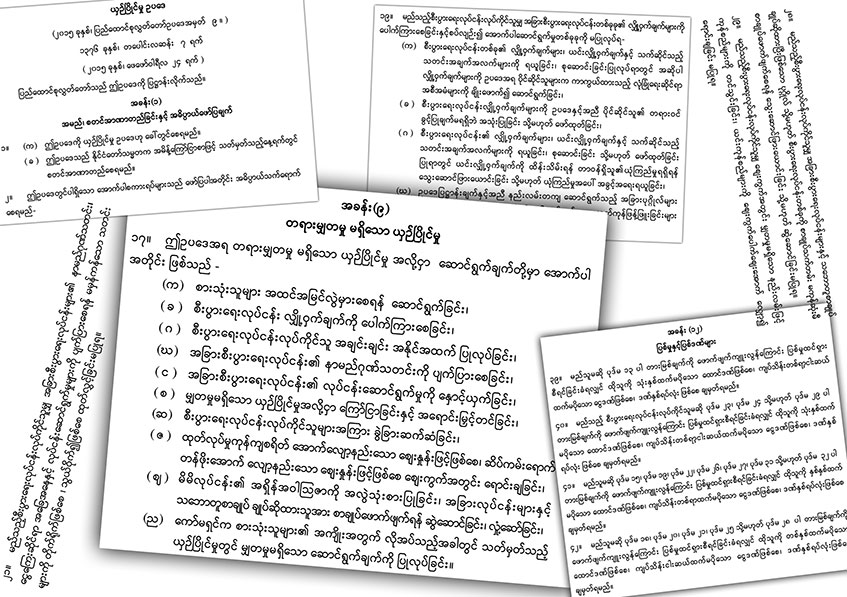
economic regulatory laws
He said: “We need to relax some laws. Over the past five years, there have been laws enacted for security reasons. Among those laws, there are some that negatively impact the economic sector. First and foremost, we business owners need to demand that all of those be relaxed. At present, there are many laws affecting manufacturing processes, import procedures, and the flow of goods. Those are the ones that need to be relaxed as a priority. During previous governments, issues were addressed through a parliamentary system. Some matters were enforced by leaders unwillingly due to security and national conditions. However, now that the situation has changed, these restrictions should be relaxed. If they continue to be maintained, it will become very difficult to operate businesses. Border trade has also been heavily affected. Once a parliament is formed, we will be able to raise our demands again.”
Under the new government, it is necessary to create new job opportunities and enable manufacturers to expand their markets. Similarly, policies related to imports and exports should be relaxed, and sufficient fuel supply must be ensured.
As Myanmar has now transitioned to democracy under the new government, businessman U Zaw Zaw told CNI News that he hopes to see transparent and open economic reforms.
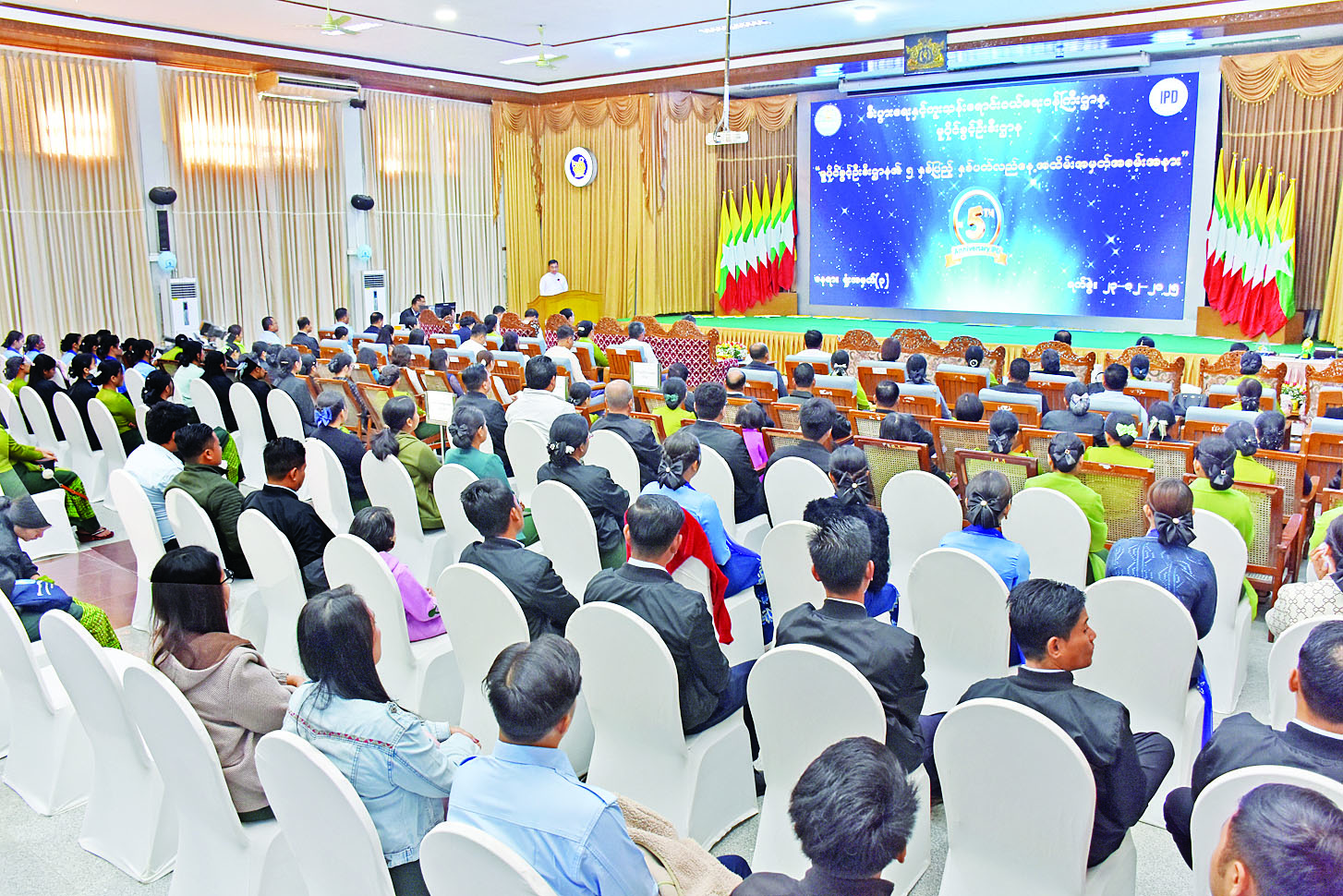
an economic discussion forum
He said: “In terms of economic policies, there are various restrictions imposed for different reasons. Import and export activities should be opened up in a transparent manner, and the state should collect fair and reasonable taxes. Matters that need to be relaxed should be relaxed. There are many areas that require reform. Although there were political conditions and restrictions previously, now democracy has been achieved. Under the new government, we want transparent relaxations and concrete actions related to the economy. Many policies need to be changed. There are many prohibitions and restrictions that should now be eased. For example, in northern Shan State, the Hsipaw Bridge has been closed without any clear explanation. These kinds of issues, even down to the details, need serious attention, especially in the tourism sector. Obstacles like these significantly hinder economic development.”
Business owners and economic analysts pointed out that it is necessary to find ways for the government and business community to cooperate effectively in order to develop and grow Myanmar’s economy.

- By CNI
- Category: English Section
- Hits: 223
CNI News
4 February 2026
The Union Election Commission (UEC) announced the consolidated list of elected parliamentary representatives from the 2025 Multiparty Democratic General Election on February 3, 2026.
According to the announcement, the Union Solidarity and Development Party (USDP) won 739 seats, followed by the National Unity Party (NUP) with 68 seats, the Shan and Nationalities Democratic Party (White Tiger Party) with 39 seats, the People’s Party (PP) with 30 seats, the People’s Pioneer Party (PPP) with 20 seats, and the Pa-O National Organization Party (PNO) with 18 seats, among others.
In addition, the Mon Unity Party won 17 seats, the Naga National Party 12 seats, the Arakan Front Party 8 seats, the Karen National Democratic Party 7 seats, the Zomi National Party 7 seats, the Myanmar Farmers Development Party 6 seats, the Arakan National Party 6 seats, the Shanni (Tai-Leng) Solidarity Party 5 seats, the Danu Ethnic Democratic Party 5 seats, the Tai-Leng (Shanni) National Development Party 4 seats, the Inn National League Party 4 seats, the Kayah State People’s Party 3 seats, and the Kachin State People’s Party 3 seats, respectively.
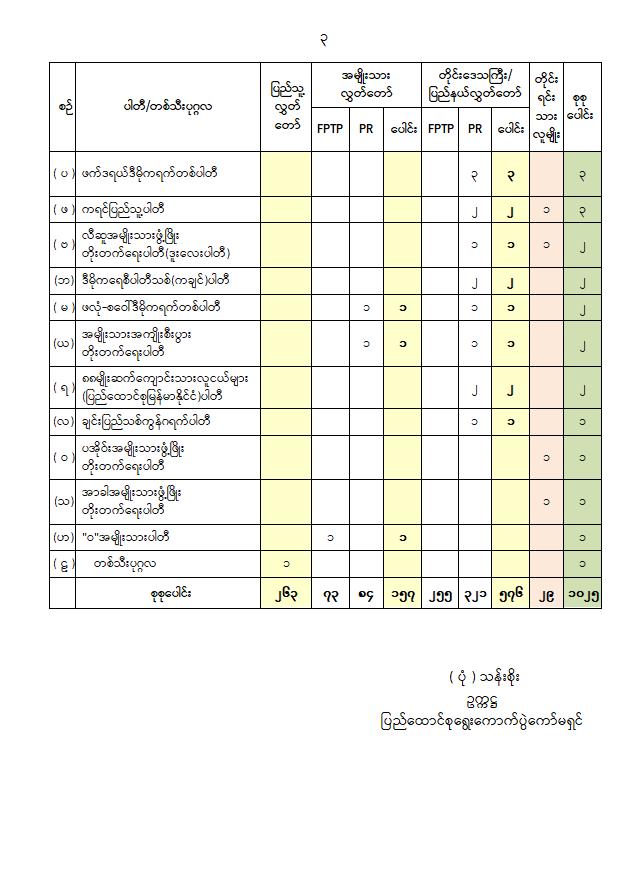
The general election in Myanmar was held in three phases, from December 28, 2025, to January 25, 2026.
According to the UEC, the election covered a total of 688 constituencies, including: 263 constituencies for the Pyithu Hluttaw, 73 constituencies for the Amyotha Hluttaw under the First-Past-The-Post (FPTP) system, 26 constituencies for the Amyotha Hluttaw under the Proportional Representation (PR) system, 255 constituencies for Region or State Hluttaws under the FPTP system, 42 constituencies for Region or State Hluttaws under the PR system, 29 ethnic minority constituencies for Region or State Hluttaws.

- By CNI
- Category: English Section
- Hits: 124
CNI News
4 February 2026
Sai Htay Aung, Chairman of the Tai-Leng (Shanni) Nationalities Development Party (TNDP), told CNI News that armed organizations must be brought under legal regulation by any means necessary. He emphasized that every time a new armed group emerges, it adds another burden to the people, and his party is committed to transitioning from the dominance of armed groups to a rule-of-law system.
Sai Htay Aung highlighted the historical and current struggles of the Shanni people:
Long-term Oppression: The Shanni people have lived under the oppression of the KIA for over 60 years.
Proliferation of Armed Groups: In the current political shift, various armed groups have emerged within Shanni regions, often with the intent to fight back.
Resource Exploitation: Despite the Shanni region being rich in natural resources, locals do not benefit. Armed groups extract these resources for their own interests.
"To speak of 'law' when armed groups are dominant might make some people call me a fool today," Sai Htay Aung remarked. "But I will try my best to make it happen so that our people can live peacefully under legal protection."
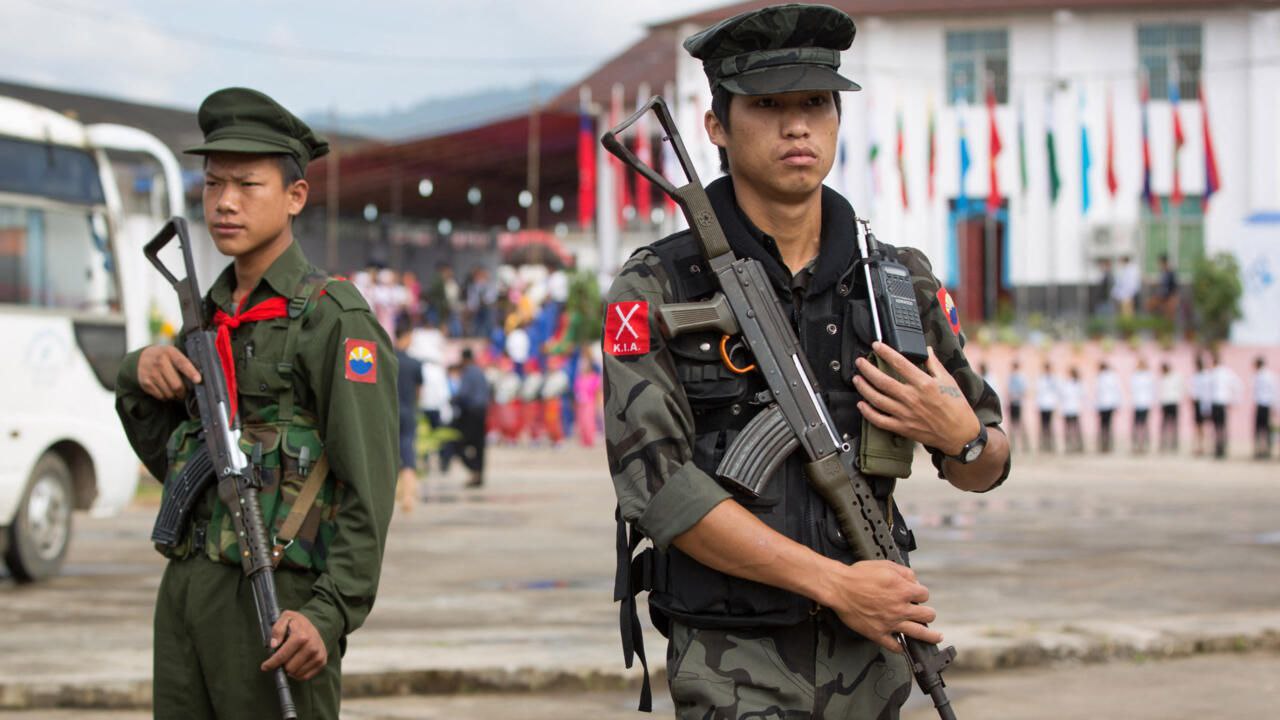
A leader of the KIA.
The Current Military Landscape
The KIA is currently providing military training, ammunition, and sanctuary to Spring Revolution forces, while also participating in joint operations in Sagaing Region and Kachin State. Sources close to the situation report that the KIA headquarters currently hosts a coalition of groups, including the AA, Naga armed groups (ENDA/ENNO), NUG, NUCC, CNF, ABSDF, and various PDFs.
The conflict between the Myanmar military (Tatmadaw) and these armed forces has intensified across the country, resulting in over 3 million internally displaced persons (IDPs).
The Role of the New Parliament (Hluttaw) Colonel Khun Okkar, Chairman of the Pa-O National Liberation Organization (PNLO-NCA/S), noted that significant changes regarding armed conflict are unlikely within the first six months of the new parliament.
Legislative Process: The new parliament must first enact policies and laws to address the current situation.
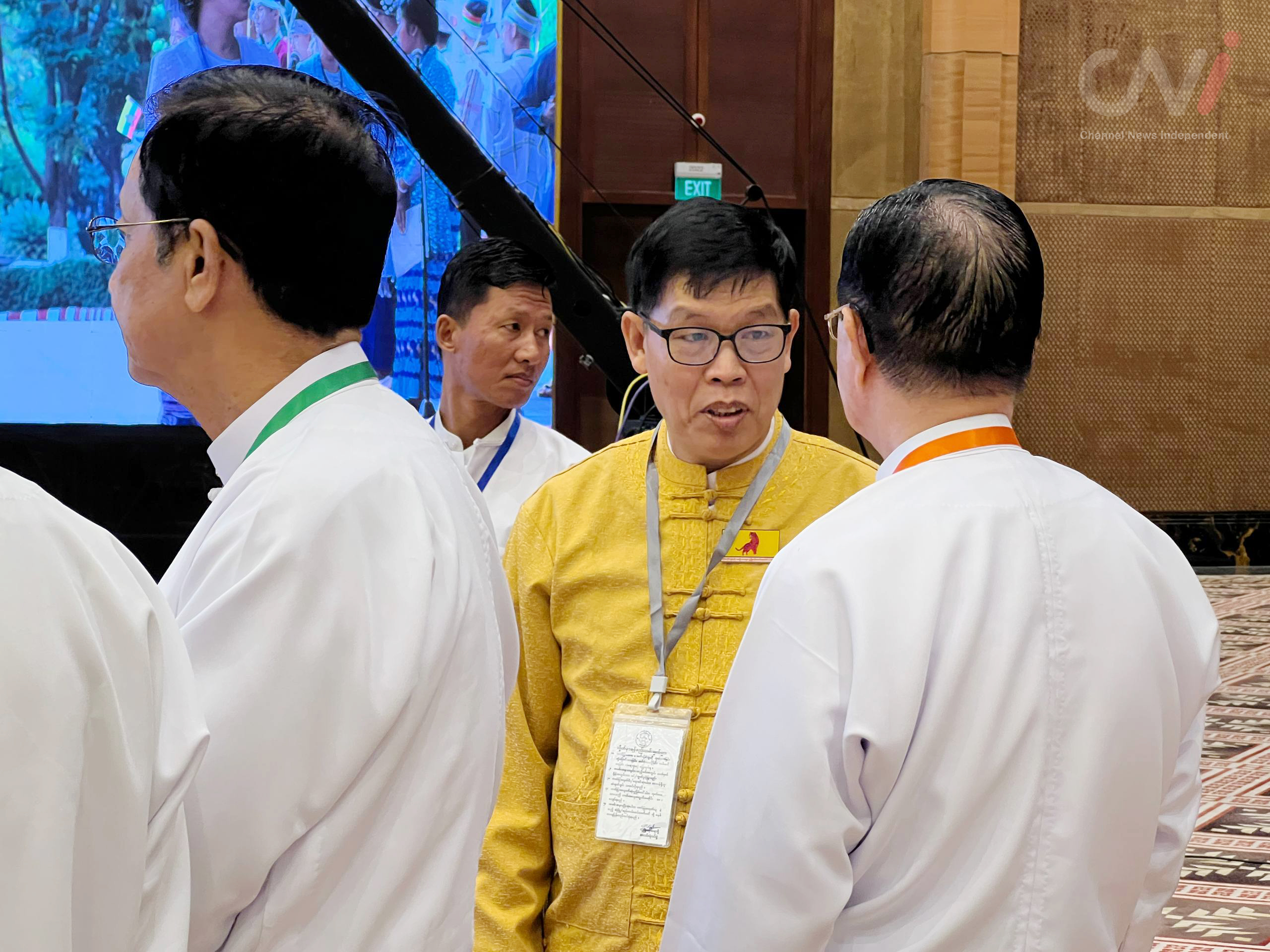
Sai Htay Aung, Chairman of TNDP.
Timeline for 2026: The first half of 2026 will likely focus on forming the government, electing a president, and reviewing existing laws (repealing unnecessary ones and enacting new ones).
Second Half Prospects: By the second half of the year, the government may begin inviting fighting groups and those abroad back into the political fold.
International Impact: Sanctions may only be reconsidered by the international community once the government and parliament demonstrate clear legal reforms and de-escalation.
Looking Ahead Following the completion of the three-part general election on January 25, 2026, both observers and the public are closely watching how the political and military landscape will shift under a new government.
Senior General Min Aung Hlaing has stated that the Hluttaw will be convened in March, followed by the formation of a new government in April.

- By CNI
- Category: English Section
- Hits: 130
CNI News
4 February 2026
Since February 2021, Myanmar has seen a steady climb in basic food prices, leading many to question the root causes and search for solutions to stabilize the market.
In Yangon, a bag of Sin Thukha rice has reached 85,000 MMK, while a bag of Pawsan rice exceeds 200,000 MMK. Eggs are priced at 350 MMK each, creating significant hardships for the working class. However, the situation is even more dire in other urban areas; for instance, in Homalin, Sagaing Region, a single egg can cost between 1,500 MMK and 2,000 MMK.
Root Causes of Inflation According to businessman U Aung Pyae Sone, the issue is deeply tied to production and labor. He shared the following insights with CNI:
Labor Shortages: Failure to address the scarcity of labor will keep prices on an upward trajectory.
Supply and Demand: Prices fluctuate based on market availability versus consumer needs.
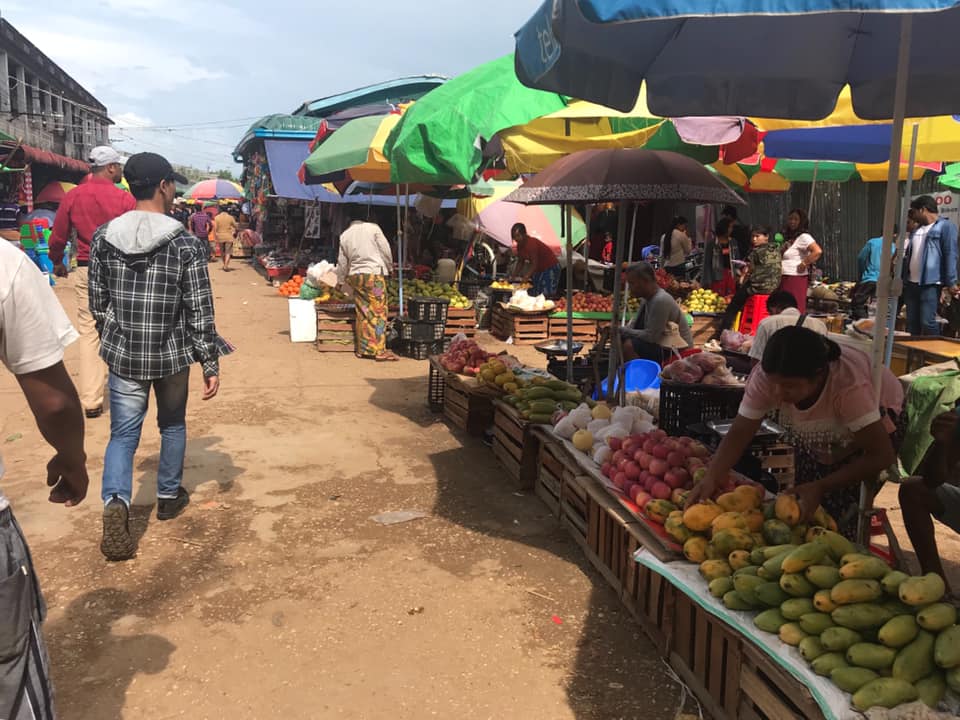
A view of the market in Tamu.
Production Weaknesses: High costs of land, labor, and capital are hindering local output.
Logistics: Instability along transportation routes adds to the final cost of goods.
Operational Costs: Daily expenses and rising wages naturally push commodity prices higher.
Business analysts also point to three fundamental economic factors: Rising Demand, Decreasing Supply, and Currency Inflation.
Furthermore, political analyst U Htet Aung Kyaw noted that bureaucratic hurdles are a major bottleneck. He explained that delays in obtaining import licenses from the Ministry of Commerce are causing shortages and price hikes for goods that cannot be produced locally.
Proposed Solutions Experts suggest that controlling prices requires more than just a centralized government mandate.
Key recommendations include: Boosting Local Production: Encouraging domestic manufacturing to replace expensive imports.
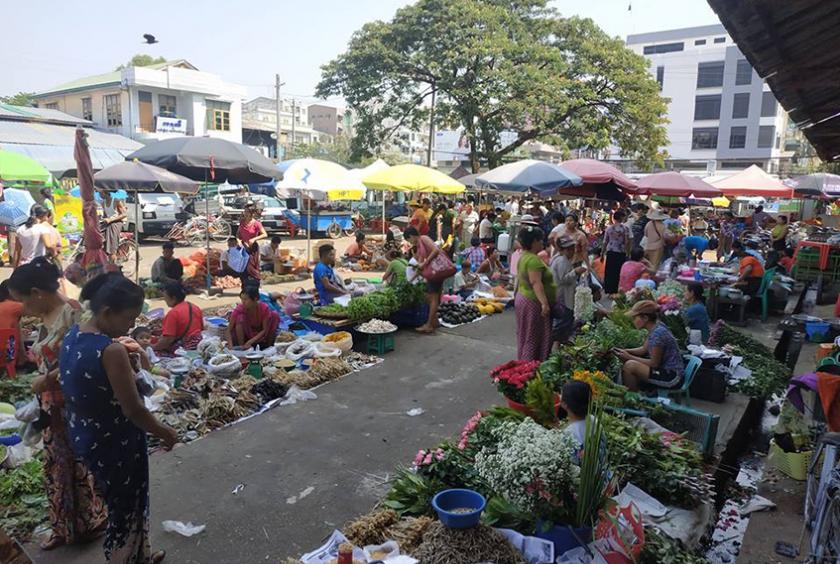
Vendors selling basic produce.
Human Resource Investment: Developing skilled labor to ensure efficient production.
Capital Accessibility: Providing the necessary funding and support for businesses to expand.
Policy Reform: Streamlining the import/export licensing process to prevent market stagnation.
Legislative Action: Utilizing parliament to address these economic challenges and influence ministerial decisions.
The Public Outlook Currently, citizens are forced to spend more cautiously than ever. There is a widespread hope among the people of Myanmar that the new government and parliament following the elections will prioritize controlling and reducing the high cost of living.



